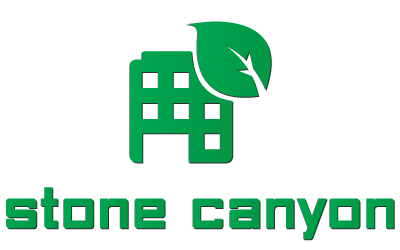
Small businesses can access funding from many sources. These funding sources include small business grants, debt capital and retained earnings. Each source has its benefits and drawbacks. This will allow you to choose the best option for your business. Here are some of the most commonly used sources of financing for small businesses.
Retained earnings
Retained earnings are a source of funding that companies can use for various purposes. You can use retained earnings to finance new equipment, warehouse expenses, or a website. This funding source provides a clear picture about a company's financial health. But, this source of funding comes with a number of drawbacks and should be used with caution.
If retained earnings are managed well, they can help a company succeed. These earnings can be used to finance new ventures or pay down balance sheet debt. They are also great sources of emergency funding. Companies can avoid the cycle of debt by having an emergency fund in case an emergency occurs.

Debt capital
The exchange of debt capital between a borrower & a lender is one form of financing. The borrower is responsible in repaying the borrowed amount over a specific time. The lender will release capital if the borrower meets certain requirements, including regular payments and meeting the repayment plan. Debt funding is useful for businesses that need additional liquidity to meet their goals.
The most common source of debt financing is a business loan. Although small businesses can often get bank loans, they may find it difficult to repay them. Many companies opt for other sources of debt capital funding.
Small business grants
The best way to boost your business' capital is to apply for small business grants. However, you must qualify to receive these funds. These grants are often given to veteran-owned businesses, minority women and veterans. Grants are also often given to rural businesses. You can increase your chances to succeed by reviewing the available government funding sources in your area.
While the process of applying for a loan for business is very similar to applying for a grant for small businesses, there are some key differences. First, a lender for a business loan will review your business and credit ratings. A small business grant will, however, not assess your credit and expect repayment. A second advantage is that a business loan will be approved more quickly. Some lenders will approve your business loan application in less than a day, and you can receive the funds within a few business days. An application for federal grants, on the other hand, can take upto six months to be approved.

Crowdfunding
Crowdfunding allows individuals or companies to solicit contributions from a large audience. Crowdfunding is often used by start-ups, but it can also be used in emergency situations. There are several crowdfunding platforms available, including Patreon and Substack.
Crowdfunding can bring many benefits to small business owners. There are some things that you need to keep in mind before you begin a crowdfunding campaign. It is important to keep in touch with those who have contributed to your campaign. They may be able or willing to share the project with their networks.
FAQ
What is the real value of consulting?
Consulting is not only an entry-level profession for those looking to make fast money, but it's also an excellent way to acquire valuable skills that you can apply throughout your career.
Consulting can offer many career opportunities, such as project management and business development. There are many projects you could be involved in, from small start-ups all the way up to large-scale multinational corporations.
Consulting gives you the chance to grow and develop your skills. This could involve learning to manage and negotiate teams, write proposals or manage budgets.
Do I really need legal advice?
Yes! Yes. Many consultants will create contracts for clients without seeking legal advice. This can create problems down the line. What happens if the client cancels the agreement prior to the consultant's completion? What happens if the consultant doesn’t meet the deadlines specified in the contract.
It's best to consult with a lawyer to avoid potential problems.
What skills do I need for consulting?
A consultant should have strong analytical skills as well as interpersonal skills. This is because you could be asked questions or not know what you are doing. You need to be able to manage people quickly and solve problems efficiently.
Excellent communication skills are also essential. Most clients expect to hear back within 24 hours. They assume that you won't respond if they don't hear from them within 24 hours. It is vital to inform them and make sure that they are fully informed.
Statistics
- Over 62% of consultants were dissatisfied with their former jobs before starting their consulting business. (consultingsuccess.com)
- "From there, I told them my rates were going up 25%, this is the new hourly rate, and every single one of them said 'done, fine.' (nerdwallet.com)
- 67% of consultants start their consulting businesses after quitting their jobs, while 33% start while they're still at their jobs. (consultingsuccess.com)
- So, if you help your clients increase their sales by 33%, then use a word like “revolution” instead of “increase.” (consultingsuccess.com)
- My 10 years of experience and 6-step program have helped over 20 clients boost their sales by an average of 33% in 6 months. (consultingsuccess.com)
External Links
How To
What does a typical consultant's day look like?
Your work type will determine the length of your day. You will be spending time researching, planning new ideas, meeting with clients, and creating reports.
Clients will often meet with you to discuss their problems. These meetings may be over the phone via email, on-line, or face-to–face.
Also, proposals are documents that outline your ideas or plans for clients. These proposals should be discussed with a mentor or colleague before being presented to clients.
You will need to create content after all your planning and preparation. You could write articles, design websites, edit photos or conduct interviews.
Depending on your project's scope, it may be necessary to do research to get relevant statistics. For instance, you might want to find out how many people you have and if they are buying more than just one product or service.
Once you have collected enough information, it's now time to present the findings to your clients. Your findings can be presented orally or written.
After the initial consultation, it is important to follow up with clients. You might contact them regularly to check on their progress or send them emails to confirm they have received your proposal.
While this can be a slow process, it's essential to remain focused and maintain good working relationships with clients.